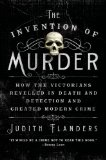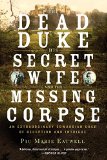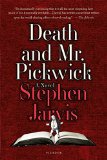Summary | Excerpt | Reviews | Beyond the book | Read-Alikes | Genres & Themes | Author Bio

How the Victorians Revelled in Death and Detection and Created Modern Crime
by Judith FlandersIn this fascinating exploration of murder in the nineteenth century, Judith Flanders examines some of the most gripping cases that captivated the Victorians and gave rise to the first detective fiction.
Murder in the nineteenth century was rare. But murder as sensation and entertainment became ubiquitous, with cold-blooded killings transformed into novels, broadsides, ballads, opera, and melodrama - even into puppet shows and performing dog-acts. Detective fiction and the new police force developed in parallel, each imitating the other - the founders of Scotland Yard gave rise to Dickens's Inspector Bucket, the first fictional police detective, who in turn influenced Sherlock Holmes and, ultimately, even P.D. James and Patricia Cornwell.
In this meticulously researched and engrossing book, Judith Flanders retells the gruesome stories of many different types of murder, both famous and obscure: from Greenacre, who transported his dismembered fiancée around town by omnibus, to Burke and Hare's bodysnatching business in Edinburgh; from the crimes (and myths) of Sweeney Todd and Jack the Ripper, to the tragedy of the murdered Marr family in London's East End. Through these stories of murder - from the brutal to the pathetic - Flanders builds a rich and multi-faceted portrait of Victorian society. With an irresistible cast of swindlers, forgers, and poisoners, the mad, the bad and the utterly dangerous, The Invention of Murder is both a mesmerizing tale of crime and punishment, and history at its most readable.
It is not often that history can be described by the words "a page-turner," or "I couldn't put it down," but Judith Flanders succeeds on both levels. She provides an intriguing slant on an era about which there are many myths and misconceptions and shows us only too well that we are not so far removed from our ancestors after all...continued
Full Review
 (696 words)
(696 words)
(Reviewed by Judi Sauerbrey).
To paraphrase an old poem, "Twas a balmy summer afternoon," July 5, 2011 to be exact. I was enjoying a peaceful lunch with a dear friend at an outdoor cafe in Portland, Oregon, when my cell phone rang and my usually placid, always refined eighty-nine year old mother screeched: "It's not guilty on all counts, and Nancy Grace is having a cow!"
She was speaking of the Casey Anthony verdict, which had just come down after a trial that had captivated Mom and a goodly portion of the rest of the country (including yours truly!) for the better part of three years. To this day that memory has an eerie aura for me very reminiscent of an old television show hosted by Walter Cronkite called You Are There! I even remember how every broadcast began: "...

If you liked The Invention of Murder, try these:

The Dead Duke, His Secret Wife, and the Missing Corpse
by Piu Marie Eatwell
Published 2016
One of the most notorious and bizarre mysteries of the Edwardian age, for readers who loved The Suspicions of Mr. Whicher

by Stephen Jarvis
Published 2016
A vast, richly imagined, Dickensian work about the rough-and-tumble world that produced an author who defined an age. Few novels deserve to be called magnificent. Death and Mr. Pickwick is one of them.